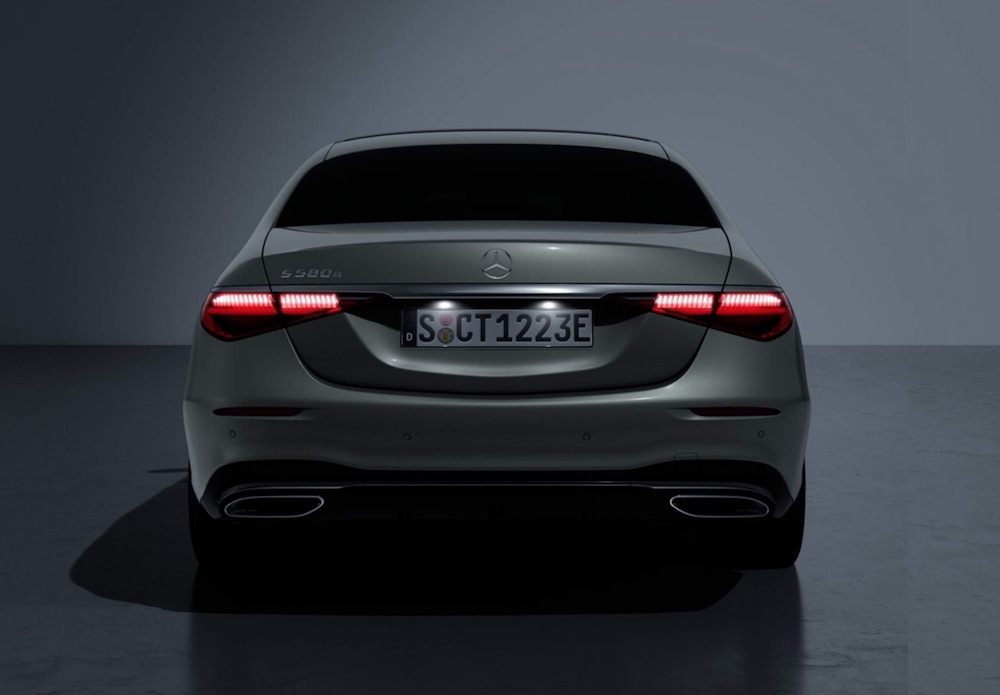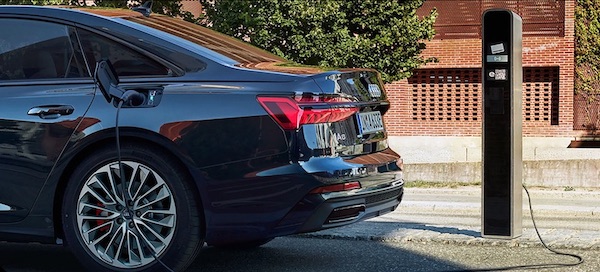Overview
Mercedes-Benz, simply known as Mercedes, is a leading global luxury automative manufacturer based in Germany. The company is headquartered in Stuttgart and is famed for its high quality passenger vehicles, to include the Mercedes-Maybach. However, the company is also a leader in manufacturing commercial vehicles, to include the plug-in Mercedes eSprinter commercial EV and the plug-in Mercedes eVito electric van.
Mercedes-Benz EQ is the sub-brand used by the company for its portfolio of battery-electric vehicles (BEVs), plug-in hybrid electric vehicles (PHEVs) and mild hybrids. The pure electric cars are branded as EQ, while the PHEVs are branded as EQ Power. The mild hybrid vehicles are branded as EQ Boost. The PHEV portfolio includes:
- Mercedes A-Class Hatchback PHEV
- Mercedes A-Class Saloon PHEV
- Mercedes B-Class Hatchback PHEV
- Mercedes C-Class Saloon PHEV
- Mercedes C-Class Estate PHEV
- Mercedes E-Class Saloon PHEV
- Mercedes E-Class Estate PHEV
- Mercedes S-Class Saloon PHEV
- Mercedes CLA Coupé PHEV
- Mercedes CLA Shooting Brake PHEV
- Mercedes GLA SUV PHEV
- Mercedes GLC SUV PHEV
- Mercedes GLC Coupé PHEV
- Mercedes GLE SUV PHEV
- Mercedes GLE Coupé PHEV
Electric Cars: The Basics
For those of you new to zero-emission electric driving, we recommend a read of the following articles:
Sign up to the e-zoomed Electric Living newsletter
The Mercedes-Benz S Class Saloon PHEV
The Mercedes-Benz full-size luxury S Class saloon was introduced in 1972 and is at the top end of luxury saloons in the global market. The executive saloon has sold well since its introduction and is considered a flagship vehicle for the German automotive manufacturer. The premium saloon is currently in its seventh generation. The S Class includes a plug-in hybrid electric vehicle (PHEV) variant, the S 580 e L AMG Line.
The Mercedes-Benz PHEV has a 28.6 kWh onboard EV battery, with a WLTP certified zero-emission electric range up to 63 miles. Both, the EV battery size and electric range are above average, when compared to other PHEVs. In general, PHEVs have an e-range between 25 miles to 30 miles.
Of course, the real-world EV range will be lower, impacted by a number of factors, to include: driving style, weather, road conditions, passenger load, services used in the EV and more. Expect a real-world electric range closer to 55 miles.
Nevertheless, the EV offers much scope for lowering the cost of motoring for city and motorway driving. Depending on where and when the EV is charged, the cost per mile on electric mode, is between 5 pence and 10 pence i.e. far cheaper than using the internal combustion engine (ICE).
Moreover, using the electric mode, also improves the overall efficiency of the vehicle. Mercedes claims a fuel economy up to 353.2 mpg for the PHEV. Of course, the real-world fuel economy will be lower, but far improved compared to the fuel economy of the conventional petrol variant (51.4 mpg).
The PHEV is capable of DC charging up to 60 kW (10% – 80%: 20 mins). Not all plug-in electric cars are capable of DC fast charging. But given the price tag of the EV, DC charging compatibility is a must! Though the EV has an 11 kW onboard charger (10% – 100%: 2 hrs 15 mins), the majority of homes in the UK will not be able to take advantage of the faster 3-phase AC charging, given that most residential premises have a single-phase power supply. A single-phase domestic EV charger like easee, will charge the EV in under 4 hours.
As one would expect for the S Class, the interior is luxurious and technology-laden. The EV also has a number of safety features to include: active blind spot assist, active distance assist DISTRONIC, active emergency stop assist, active lane change assist etc. The interior of the PHEV is just as well specified, to include: climatised rear seats, active multicontour front seats with inflatable air chambers and massage function, MBUX augmented reality head-up display and leather upholstery.
The electric vehicle (EV) pairs 3.0-litre (6 cylinder) petrol engine with an electric motor (110 kW). The rear-wheel drive EV can achieve 0-62 mph in 5.2 seconds and has a 155 mph top speed (in electric mode, the top speed is 87 mph).
For those seeking luxury with lower tailpipe emissions (19g CO2/km), the S Class PHEV is well suited. Do keep in mind that driving the PHEV on the electric mode will result in zero-tailpipe emissions.
The EV is suitable for both families and company-car drivers. Company-car drivers can take advantage of the lower Benefit-in-Kind (BiK) tax rate for electric cars. Bottom-line, electric driving is good for the environment and the wallet.
You can lease electric vehicles (EVs) via e-zoomed at very competitive prices!
| PROS | CONS |
|---|---|
| A good executive saloon, high quality interiors and high specifications | One of the more expensive PHEVs |
| Good EV battery size and electric range (up to 63 miles) | Only available as a rear-wheel drive |
| Good fuel efficiency for its class and low tailpipe emissions | Some may find the exterior styling outdated |
The Mercedes-Benz S Class Saloon PHEV (credit: Mercedes)
| At A Glance | |
|---|---|
| EV Type: | Plug-In Hybrid Electric Vehicle (PHEV) |
| Body Type: | Saloon |
| Plug-In Car Grant (PiCG): | Not Available |
| Engine: | Petrol-Electric |
| Available In UK: | Yes |
| Variants (4 Options) |
|---|
| Mercedes-Benz S Class S580 e Long AMG Line Premium (from £108,705) |
| Mercedes-Benz S Class S580 e Long AMG Line Premium Executive (from £110,400) |
| Mercedes-Benz S Class S580 e Long AMG Line Premium Plus (from £113,600) |
| Mercedes-Benz S Class S580 e Long AMG Line Premium Plus Executive (from £118,095) |
| EV Battery & Emissions | |
|---|---|
| EV Battery Type: | Lithium-ion |
| EV Battery Capacity: | Available in one battery size: 28.6 kWh |
| Charging: | DC charging up to 60 kW (10% – 80%: 20 mins). On-board charger 11 kW AC |
| Charge Port: | Type 2 |
| EV Cable Type: | Type 2 |
| Tailpipe Emissions: | 19g (CO2/km) |
| EV Battery Warranty: | 6 years or 62,000 miles |
| Average Cost Of Residential Charging | |
|---|---|
| Battery net capacity : 8.8 kWh | £1.27 |
| Battery net capacity : 11.6 kWh | £1.67 |
| Battery net capacity : 12.0 kWh | £1.73 |
| Battery net capacity : 13.10 kWh | £1.89 |
| Battery net capacity : 14.10 kWh | £2.03 |
- Note 1: The average cost of residential electricity in the UK varies depending on the region, supplier and type of energy used. An average for the UK is 14.40 p/kWh.
- Note 2: Not all EV manufactures make available the data on net EV battery capacity, and in a number of instances the EV battery capacity advertised, does not state if it is gross or net capacity. In general, usable EV battery capacity is between 85% to 95% of the gross available capacity.
| Charging Times (Overview) | |
|---|---|
| Slow charging AC (3 kW – 3.6 kW): | 6 – 12 hours (dependent on size of EV battery & SOC) |
| Fast charging AC (7 kW – 22 kW): | 3 – 8 hours (dependent on size of EV battery & SoC) |
| Rapid charging AC (43 kW): | 0-80%: 20 mins to 60 mins (dependent on size of EV battery & SoC) |
- Note 1: SoC: state of charge
| Dimensions | |
|---|---|
| Height (mm): | 1503 |
| Width (mm): | 2109 |
| Length (mm): | 5289 |
| Wheelbase (mm): | 3106 |
| Turning Circle (m): | 12.5 |
| Boot capacity (L): | 350 |
| S 580 e L | |
|---|---|
| EV Battery Capacity: | 28.6 kWh |
| Pure Electric Range (WLTP): | 62 – 63 miles |
| Electric Energy Consumption (kWh/100km): | 19.9 – 19.7 |
| Fuel Consumption (MPG): | 353.2 |
| Charging: | DC charging up to 60 kW (10% – 80%: 20 mins). On-board charger 11 kW AC |
| Top Speed: | 155 mph (electric: 87 mph) |
| 0-62 mph: | 5.2 seconds |
| Drive: | Rear-wheel drive (RWD) |
| Electric Motor (kW): | 110 |
| Max Power (hp): | 367 (combustion engine)/ 150 (electric motor) |
| Torque (Nm): | 500 (combustion engine)/ 480 (electric motor) |
| Transmission: | Automatic |
| Seats: | 5 |
| Doors: | 4 |
| Kerb Weight (kg): | 2,385 |
| Colours: | 10 |
| NCAP Safety Rating: | N/A |
While e-zoomed uses reasonable efforts to provide accurate and up-to-date information, some of the information provided is gathered from third parties and has not been independently verified by e-zoomed. While the information from the third party sources is believed to be reliable, no warranty, express or implied, is made by e-zoomed regarding the accuracy, adequacy, completeness, legality, reliability or usefulness of any information. This disclaimer applies to both isolated and aggregate uses of this information.









































